Cats naturally jump and climb, so it's common for our feline friends to hop up on the kitchen counters. However, kitchen counters are dangerous! Your pet could eat foods that are toxic to them. They might lick cleaning chemicals from freshly cleaned surfaces or step on a still-hot stovetop. And that's not to mention the bacteria their paws can spread when they hop onto your cooking surfaces right after a stint in the litter box!
Allowing your cat to leap onto the kitchen counter isn't advisable. However, curbing this behavior is more challenging in practice than in theory! Cats aren't known for being particularly obedient creatures. You'll have to deter them in other ways. Below, we'll look into the motivation behind this feline behavior and offer many solutions to how to keep cats off counters.
Why Do Cats Jump Up On Counters?
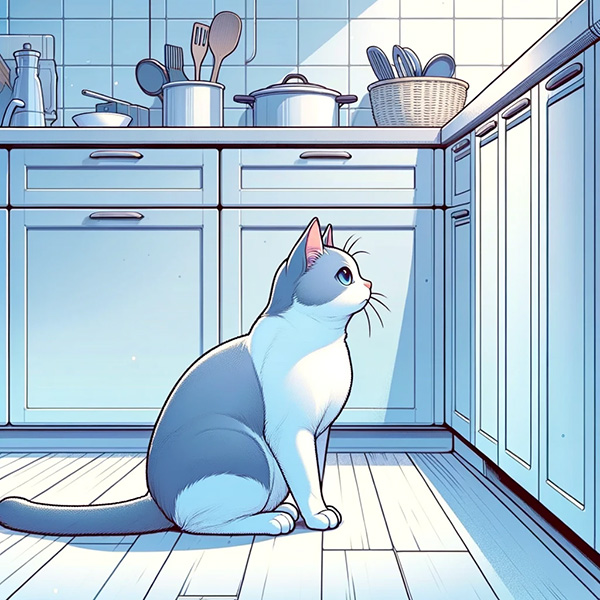
Before trying all the tricks to keep your cat from counter-surfing, figuring out the motivation behind your cat's behavior can be helpful.
Height
Cats like to keep to a high vantage point, if possible. Elevating to your eye level assists them in feeling at ease and empowered within their environment. Kitchen countertops are the perfect height for this.
Scent
There is a symphony of scents coming from the kitchen counter! From the dirty plates in the sink to the bananas ripening in a bowl, the kitchen counter is full of smells that your feline friend wants to explore.
Warmth
Countertops near stoves or ovens might retain warmth, providing a cozy resting spot for a cat seeking comfort.
Water
Fresh running water dripping from a leaky faucet will appeal more to your cat than water sitting in their water bowl.
11 Tips To Keep Cats Off Counters
With these motivations in mind, you can move towards finding ways to keep your feline friend off the counter.
Move Chairs And Stools
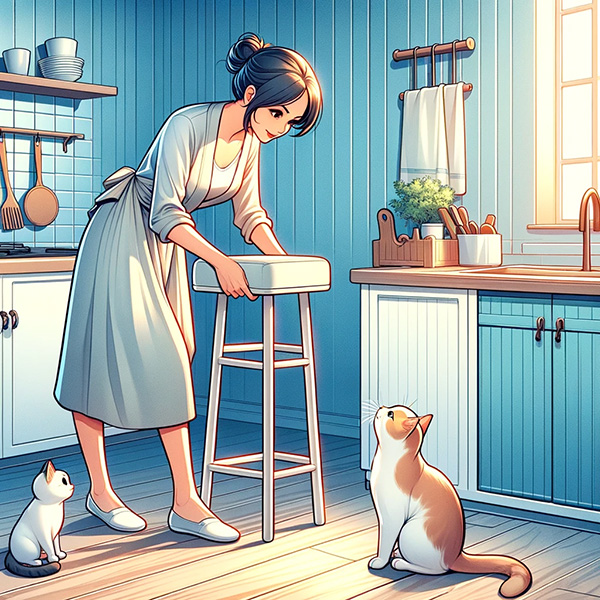
For some cats, this fix will nip the problem in the bud! If your cat relies on a chair, stool, or trash can to bridge the gap from the floor to the counter, move them out of the way! This doesn't necessarily mean you can never have stools in your kitchen, but moving them away for a few weeks can break the habit.
Keep Food Properly Stored Away

The main reason for cats jumping up on the counter is to access food. The smell of food scraps, fruit ripening, crumbs, dirty dishes, and leftovers is going to be too powerful of an attraction for your kitty to ignore. Rather than fight it, do your part in preventing the problem! Wash dishes promptly, keep lids on food containers, and wipe down surfaces regularly.
Fix Leaky Faucets
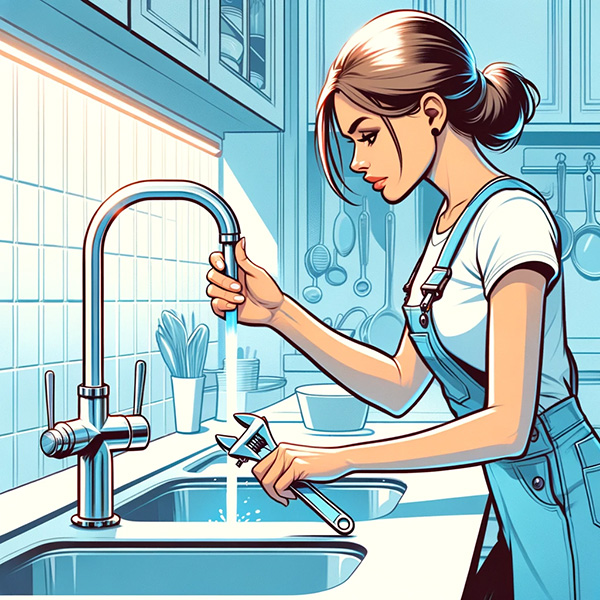
Cats are naturally drawn to running water, so your cat may only jump on the counter to get to a leaky faucet! Your first step towards curbing this undesirable behavior is fixing your kitchen faucet if it leaks. Once that's done, cat owners should check out their pet's water bowl. Perhaps something about its location makes your cat want to avoid it - for example, it's too close to the litter box. Or your cat would really prefer fresh water. Could you change the water bowl daily with fresh water or add some ice to keep it cool? Consider purchasing a cat fountain, which keeps the water flowing and prevents whisker fatigue.
Block Enticing Sun Rays
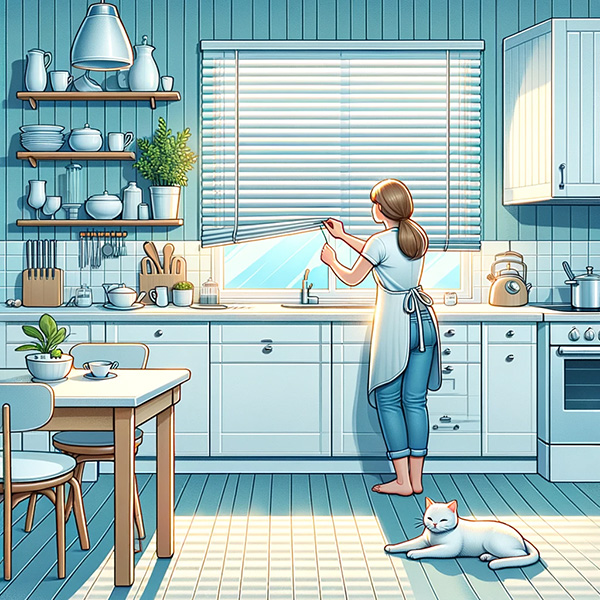
If your cats jump on the kitchen counters to get to a prime sunbathing location, closing the blinds or drawing the curtains during certain hours of the day will make it a much less appealing spot.
Build Or Buy A Cat Tower
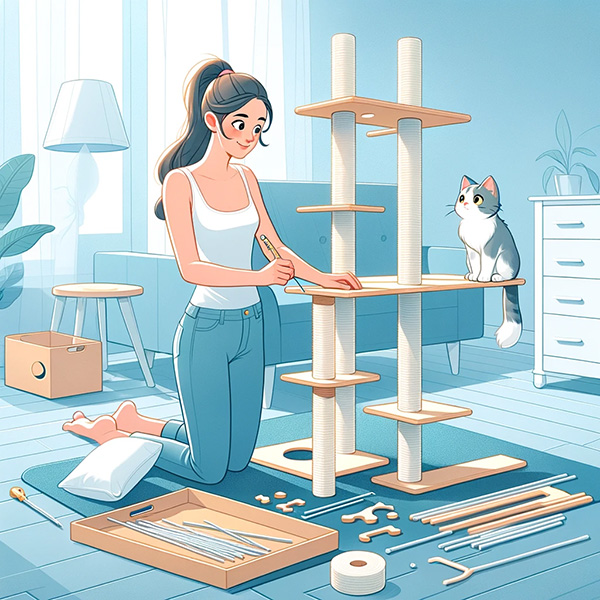
Cats love to climb, and indoor cats don't have many outlets for this natural urge. A climbing tree, cat tower, or cat shelves can provide them a safe and healthy place to climb—and keep your cat off the counter! The downside is that cat trees take up a lot of space and are usually pricy. You can repurpose existing furniture if you don't have the space for a cat tree in your house or budget. The goal is to make a climbing area that is more attractive than the kitchen counter. This can be a bookshelf or a sofa table, for example. Add some catnip, a blanket, and move it to where the sun's rays hit it, and your cat won't care about the kitchen counter anymore!
Try Clicker Training
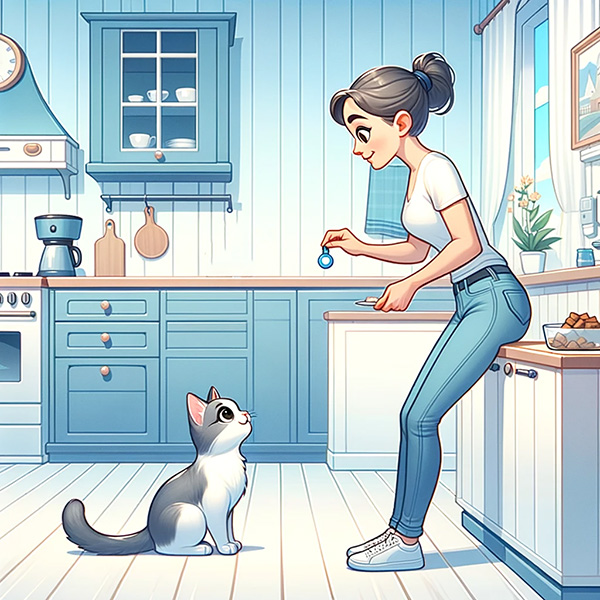
Clicker training is typically associated with dog training, but cats are also intelligent animals. Utilizing positive reinforcement in this manner is an excellent approach to discourage cats from accessing countertops! Place a treat on the floor when your cat jumps on the counter. Press the clicker and make a sound as soon as your cat jumps down to get the treat. Over time, your cat will establish a connection between the click and the reward, leading it to comprehend that whenever it hears the click, it should descend from the counter, even if no treat is provided.
Cover Countertops

Cats are particular about their surroundings, including what surfaces they walk on. If you can cover your counters with something that bothers your cat's paws, then they'll quickly learn to avoid leaping up on them. Many pet owners advise putting aluminum foil on your counters because the combination of the slick surface and crinkle metallic noise is both something cats don't like. Other options are plastic wrap, plastic sheeting, and sandpaper. The downside to this technique is that your counters will be a mess for a while, but most cats will learn quickly that the tops of your counters are no longer a place they want to be.
Sticky tape
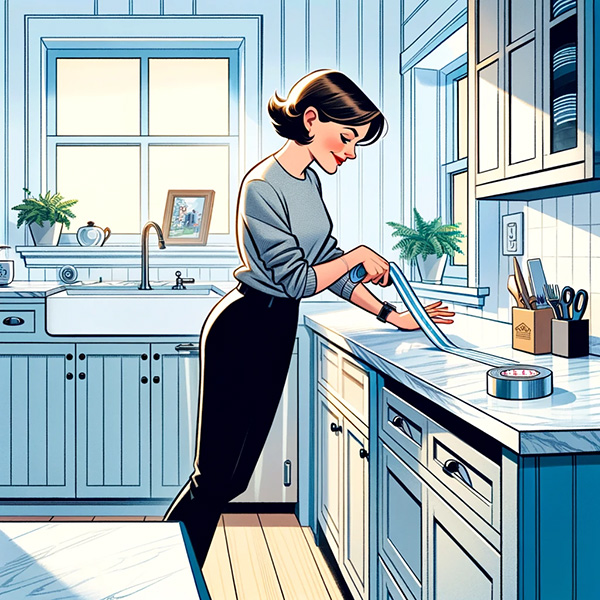
Cats often dislike the sensation of adhesive tape on their paws. Placing double-sided tape or sticky tape sheets designed for this purpose in areas where your cat typically jumps or walks can deter them from jumping up to your counter. For this method to be effective, using the sticky tape consistently is crucial. Over time, your cat will associate the counter with the unpleasant texture and likely stop jumping up.
Apply Different Scents

In addition to not liking certain textures on their paws, cats also tend to avoid certain scents. Essential oils like peppermint, citrus, lavender, eucalyptus, and lime can be employed to deter cats from countertops. A small diffuser will spread the scent well, or you can put a few drops on cotton balls and place them around the kitchen counter. Some kitchen cleaning sprays are available in peppermint or citrus scents, and wiping your counters with these sprays will deter your four-legged friend from leaping up.
Make Startling Sounds
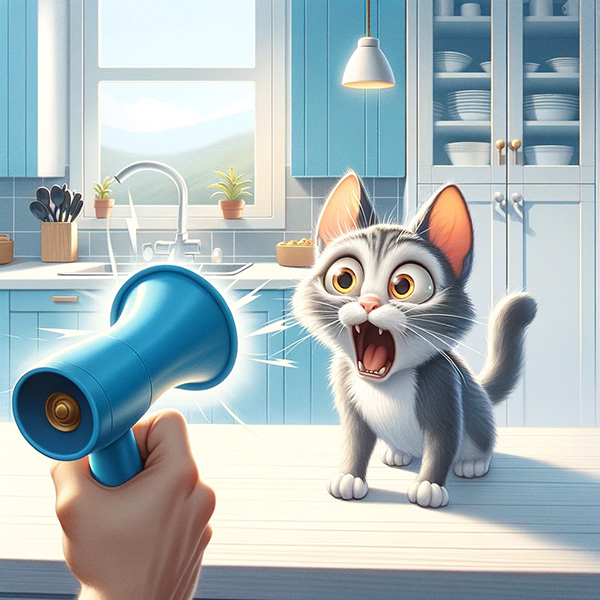
If your cat hops up on your kitchen counters, you can curb this unwanted behavior by creating a negative connotation through sound. Covering counters with aluminum foil will cause a loud crinkle when your cat lands on it. Stacking empty soda cans on the counter so that they topple when your cat jumps up will quickly startle them away from the kitchen. If you'd rather keep your countertops clear, you can instead make a point to keep a close eye on your cat for a few days. Sound an air horn every time your cat jumps on the counter, and it will quickly learn to avoid it.
Use A Spray Bottle
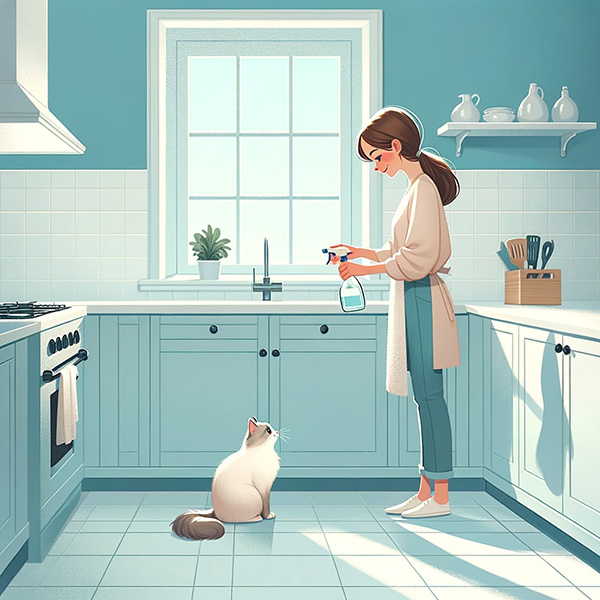
Cats hate water on their fur. While it's important not to overdo it, keeping a spray bottle of water nearby and giving your cat a spritz when they jump up on the countertops will quickly teach your pet to stop this behavior.
